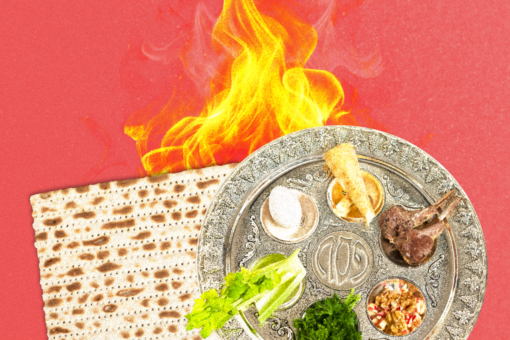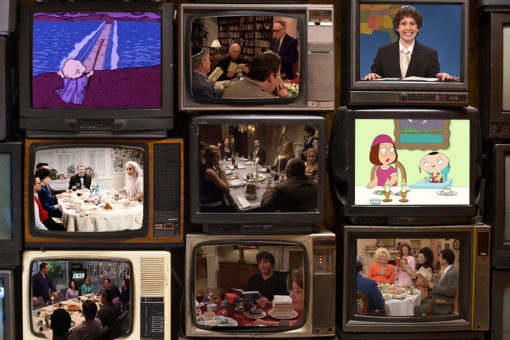“You have to respect me because I am your parent!” The number of times I’ve heard this… I don’t think I can count them, actually. As Jews, we’re taught that one of the most important things we must do is to respect, love, and honor our parents — those who gave us life. It’s important enough that it comes up a few different times in the Torah. Different words but same message: respect and love those who gave you life.
Parents are the ones that put us in this world. They are the ones that took care of us when we were young, fed us, held our hands when we were scared, tended to us when we were sick, and shaped so much of who we are. Part of the people we become is a reflection of our parents and the way they raised us. So, of course, it makes sense for us to be taught that we should honor and respect them.
The thing is, it’s not always so easy to honor, love, and respect someone who intentionally hurt you, over and over. My mother — the woman who carried me for nine months and gave birth to me — was a physically, verbally, and emotionally abusive parent. After my parents’ divorce, she seemed to redirect her anger and frustration towards my siblings and me. For the longest time, asking for help didn’t even seem like an option; we thought there was no way out.
Eventually, my father was able to help us escape the house we shared with our mother. While I cut off contact with her, it took my siblings a little longer, so I would still see her every now and then.
In the few actual interactions I had with her during this time, she’d always find a way to leave me in tears, bringing up my obligation to honor and respect her, despite the abuse — which she sometimes admitted to and sometimes denied right to my face; it all depended on her mood and who was around to listen. I had to forgive her and love her, she claimed, if I wanted to be a “good Jew.” She’d use Jewish texts (or the bits that supported her arguments) to claim that I owed her everything I was and that I had to let her back in my life. Mind you, she’s not actually Jewish herself. But she knew how important Judaism was to me, even when I was younger, and knew I’d have a hard time reconciling my desire to live up to the “ideal” Jewish young woman that I’d made up in my head and my need to distance myself permanently from her.
Back then I wasn’t as confident as I am now, both in myself and in my beliefs. While I stood my ground and never let her back in my life (I haven’t spoken to her in almost 16 years), she managed to mess with my head a bit. The seed of doubt had been planted: How can I honor someone who willingly caused — and continues to cause — me harm? I can’t. I won’t.
It took a lot of time, energy, therapy and tears for me to realize that “honoring my mother” doesn’t actually mean I owe her unconditional love, admiration and respect.
For years I refused to call her what she was — my mother; I refused to use a word that was supposed to represent someone I looked up to and loved with all my being, and who loved me back. Instead, I’d refer to her as “Esa Señora” — that woman. But I had to forgive her, and myself, before I could understand that to “honor something” means to give them recognition. So now I do that. I recognize the fact that she gave birth to me. Despite how toxic and harmful her behavior was, she played a major role in my being here today; there’s not much I can do to change that. While I’m aware that sharing DNA with someone doesn’t give them an automatic pass at being a jerk and free access to me and my life, I must acknowledge that I exist in this world because of her. So this is how I honor her part in my existence, by calling her what she is: my mother.
Something else I came to understand during this time is the importance of honoring the people who built me up and pushed me to heal and truly figure out who I am, even if I don’t share their genes. People like my step-mom — despite us not being blood relatives and looking nothing alike, she’s my family. She took care of me, raised me, and loved me as her own. Yes, I believe that everything happens for a reason, so while she did not give birth to me, she was always meant to be my mom — family isn’t always dictated by blood and genetics. So this is how I honor her part in my being who I am today, by calling her what she is: mi mamá — my mom.
I am lucky to be in this world, and for that, I’m thankful to the people who put me here. I am even luckier to have found someone to love me in a way a mother is supposed to love their children. It’s not easy accepting that adults (I’m nearly 30 and I still don’t consider myself an adult, tbh) — parents especially — aren’t perfect. They make mistakes, too. Do we have to forgive them? No, but life gets a little easier if we do. Do we owe abusive parents access to us? No, absolutely not. Should we make peace with the fact that a part of them will always be with us? Yeah, probably. I found the peace I’d been craving for so long when I finally did. I’m a survivor. My past will always be with me, but I’m finally able to leave it where it belongs: in the past.



